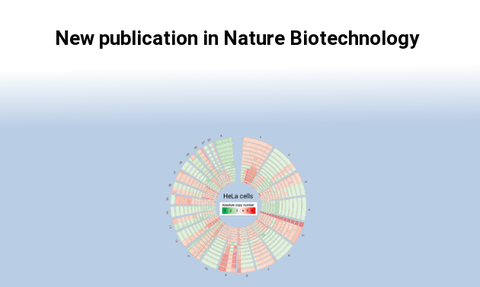Feb 27, 2019
New publication in Nature Biotechnology
Dr. Michael Seifert, head of the Bioinformatics Core Unit at the Institute for Medical Informatics and Biometry (IMB) TU Dresden, is co-author of the manuscript „Multi-omic measurements of heterogeneity in HeLa cells across laboratories“, which has been published in the high-impact journal Nature Biotechnology.
Biological and technical variation can have important impacts on the reproducibility of research results. Novel findings may never be translated into the clinic if they cannot be reproduced by other scientists. Most attention has been paid so far on the reduction of technical variation, but another important factor that influences the reproducibility of research results is the biological variation of considered samples (e.g. utilized cell lines).
To investigate the impact of biological variation, a team of international scientists analyzed samples of HeLa, the oldest and most widely used human cancer cell line, from 13 laboratories of six different countries. The different HeLa cells were cultured under uniform conditions and DNA copy number mutations, gene and protein expression and protein turnover rates were measured for each cell line over time. In addition, an experiment to study the response of the cell lines to Salmonella infection was performed.
We identified substantial heterogeneity within and between the different HeLa variants, especially between lines of the CCL2 and Kyoto varieties. Genomic variation altered gene and protein expression, as well as the cellular response to Salmonella infection. These findings highlight the importance of biological variation for the reproducibility and interpretation of research results. Recommendations are given to improve the reproducibility of results.
Dr. Seifert has performed the analysis of the DNA copy number data of the different HeLa variants in close collaboration with the Yale researcher Yansheng Liu, who is the first author of the study.

